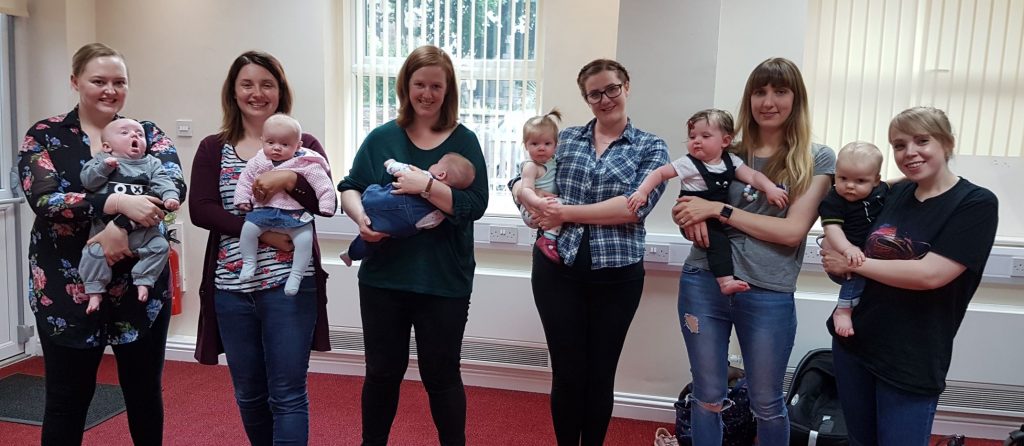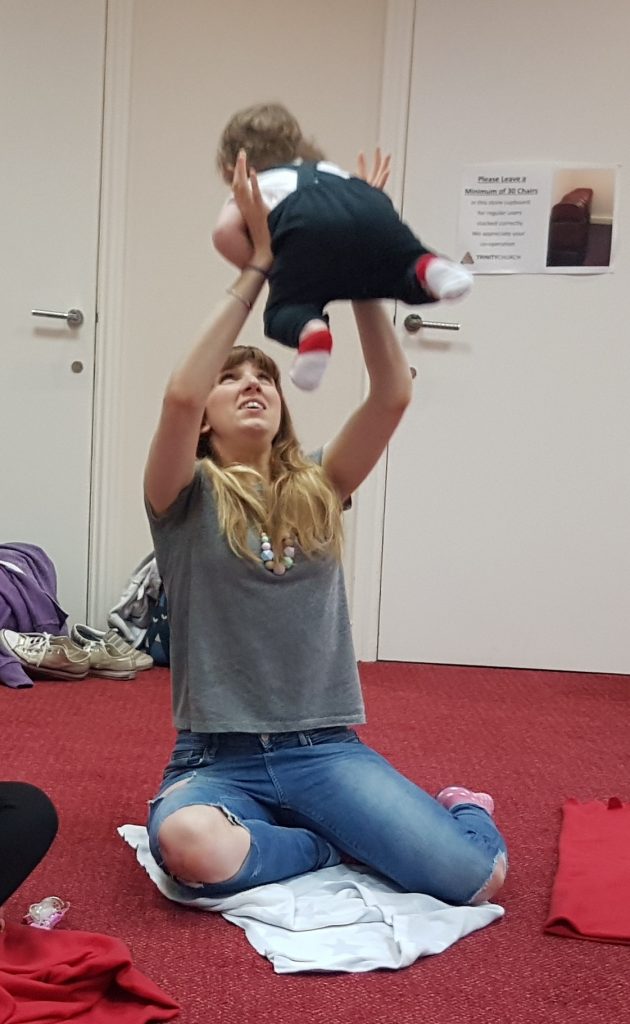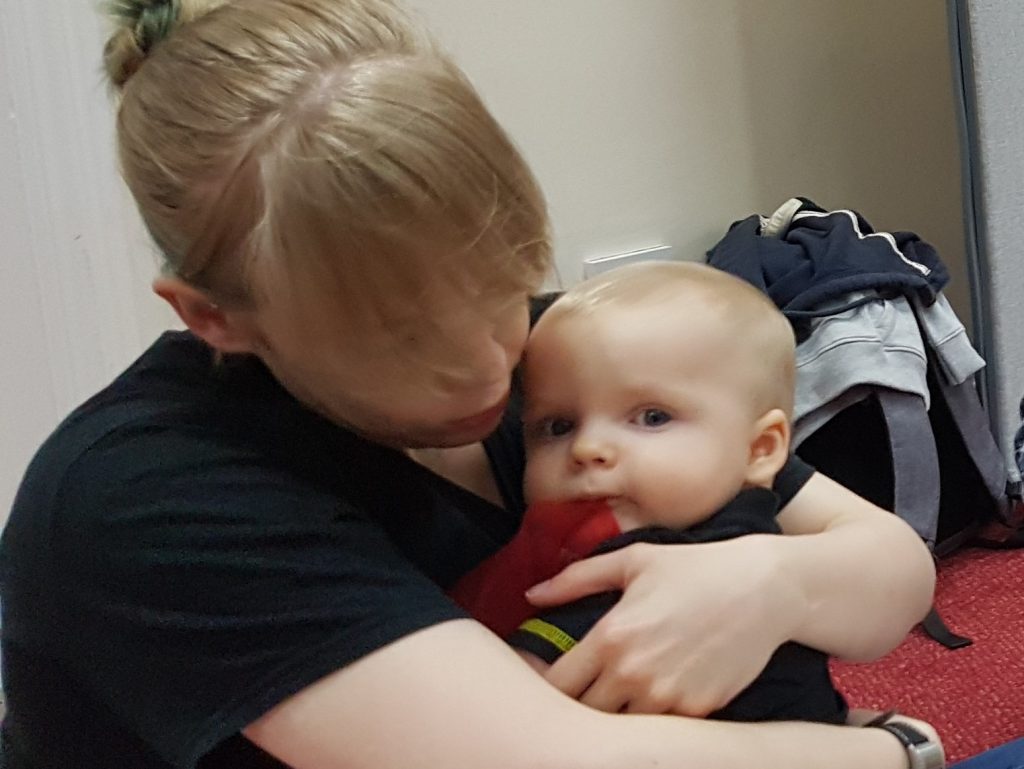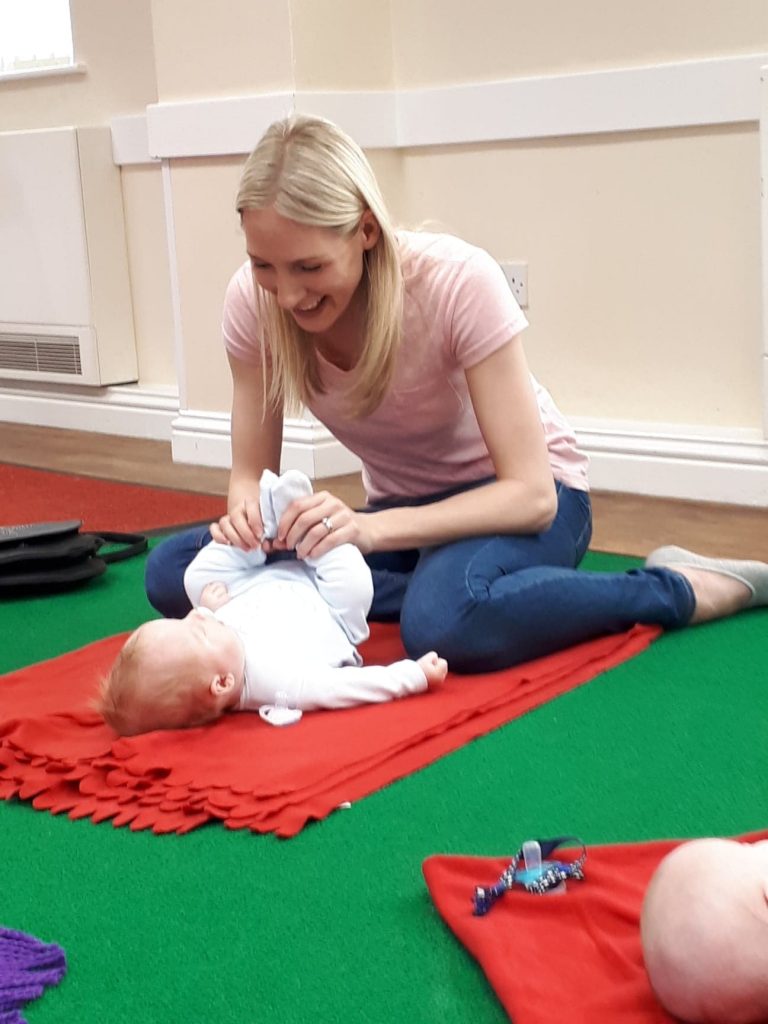
It has been a busy kind of year for us at Think Cre8tive Group. One where we haven’t really had time to blog however we wanted to update you on the amazing things we have been doing over the past year.
Mel started out in Wakefield with a project close to her heart helping mums with young babies who may be feeling low mood. Sing It Out! Mama was born from the fact that many women suffer from pre and post natal depression after having a baby. It is easy to become isolated, feel like you can’t cope and have a million things you are meant to do as a mum. Suddenly the identity you once had, the ability to do what you want and when changes and it is a big change!
Thanks to funding from En:Able Communities, Efficiency North we were able to run a pilot project for mums in Wakefield to test and see whether music (in this case singing) helped mums through one of the biggest changes in their lives. We were extremely pleased to have been awarded Community Initiative of the Year by Efficiency North for Sing It Out! Mama and we also received National Lottery funding to continue developing the project.
This is a summary of the project.
What we did
Sing it Out! Mama was a brand new, 12 week project, which aimed to use singing as a tool for supporting pregnant and post-partum mums whilst providing singing and movement activities to do with their child. Through use of funding this enabled us to reach women who might otherwise be discriminated against because of economic circumstances. We encouraged mums to continue singing at home and also provided each mum with a Sing it Out! Mama songbook and CD at the end of the project – songs are now available to download and live stream. We also gave them a list of local groups they could go to and support groups.
The aims were to:
- Increase feelings of wellbeing through singing
- Use group singing to bring people together and through social interaction mums could share their experiences and problems.
- Combat isolation and feelings of loneliness before and after baby has been born
- Help mums form new friendships and support groups giving a sense of belonging
- Use singing to communicate with baby, to develop language skills and parent-baby bonding.
- Create bonds between mother and child through singing, movement, eye contact, communication
- Build confidence and self-esteem through singing and the possibility of mums leading their own groups.
- Gets mums out into the community and finding other activities that they can be involved in.
Through the grant we were able to run this group at no cost to the mums. This is vital as otherwise we are discriminating women based on their economic status. We encouraged singing at home, asking mums which songs they had remembered and tried at home during the week. One of the mums sent us a video of their baby being lulled to sleep in the car while the CD is playing.
How we did it
The mums who came to us had initially been referred to us by midwives and health visitors who had identified mums as needing support. This then in turn led to the mums inviting other mums. Initially, we were concerned that the group might turn into a drop-in session but we took the time to carefully explain the aims of the group and that regular attendance was needed to gain the most benefit. The mums were respectful and mindful of this and we saw a steady core of mums returning week after week.
Where did we succeed?
One massive measure of success is that two mums who attended the very first session, actually attended every session over the 12 week course. One of these mums went on to tell us it had really helped her feel confident in joining other playgroups in the area.
We also used more than one method of evaluating. The use of qualitative evidence such as recorded question and answer sessions (using open ended questions), photography and film, as well as asking the mums to answer written open-ended questions with the choice of being anonymous.
Another measure of success is that the women organised themselves to meet socially outside of the session. We created a list of local groups happening on different days which prompted conversation about who had already been, where they’d like to try and so on. Having our project based in the local Church’s community hall really helped as we had access to a kitchen so that we could make teas and coffees once the singing had finished. We also liaised with a local business so that we had a cake each week – there’s nothing like cake and a cuppa to help friendships blossom!
The majority of mums demonstrated increased confidence and this is reflected in the final evaluations carried out in weeks 11 and 12.
Other successes of this project include the numerous psychological benefits of singing as part of a group but also due to the safe, judgement-free space we created. Our intention was always to be very open and honest about our own experiences with postnatal depression and post- traumatic stress disorder following the births of our own children. This created a culture of sharing and supporting.
On the very last session, the group presented us with a personalized card, in which they commented on how safe they felt.

What didn’t work as well as expected?
Where we perhaps struggled with the project, was with the quantitative evidence to prove our success. The funders asked us to use the WEBWMS (Warwick & Edinburgh mental health Scale) however we decided to add a few key questions of our own which we felt were important in developing the project. After the first session, we had reservations at how honestly the mums filled out the form on their first session and due to the very nature of post-natal depression, women try to put a brave face on and not reveal how they’re truly feeling. This was shown in particular by one mum who circled the highest positive choice for most of the form however on talking to her she admitted she was really struggling with her baby and that she felt it was getting her down. This is reflected in her final score, which actually appeared to be negative outcome to joining the project.
The use of qualitative evaluation was probably better however we have to be aware that perhaps the women didn’t want to leave negative feedback, even though they had a chance to be anonymous.
What can we improve?
For future projects, we need to be mindful of the age of the babies when the mums join. Three of our mums had babies who were crawling away by week 12 and we did feel the mums became less engaged as their babies started to move. We should look at shorter interventions such as 6 week courses however we must be mindful as to whether we would have such a cohesively formed group in a shorter time span. We also need to consider how far into the project we accept mums joining, a new mum came for the first time in week 10 and she did not return. This may have been because the group had already formed strong bonds and established friendships.
Projects such as this are short term, we would like to see if such projects have a lasting effect on mum’s and therefore a follow up questionnaire might be appropriate, sometime afterward.
Although Health Visitors sent us a list of around 9 mums initially only 2 turned up from the list. We wanted to make sure mums felt they could come along to the group, however perhaps we need to look at chasing some of these referrals. We also found out that HV’s do not see mums as frequently as they once did and so we need to widen our outreach to perhaps GPs, midwives etc.

Outcomes
- Mums in general felt more confident about themselves.
- One mum said she felt she could be a good mum, even though she couldn’t breastfeed – this had been a particularly difficult thing for her.
- Another mum joined another group in her area – something she hadn’t been able to do before. Other mums joined together and met at another group (which was at the same venue).
- One mum shared that she had even got her husband singing to their child.
- Another mum sent a video of their baby being lulled to sleep in the car while the CD is playing.
- A year on the mums from this group have kept in touch supporting each other through their ups and downs. A support network is extremely important, knowing that there is someone there you can talk to (other than a health professional) about any worries regarding motherhood.
If you work in health and would like to know more about Sing It Out! Mama or any other project Think Cre8tive Group are working on the please do get in touch.
If you are a funder and can offer some investment to help us grow and do more great work like this, then please get in touch.


Pingback: What a year it has been for Think Cre8tive Group! - Clinical Music Social Enterprise